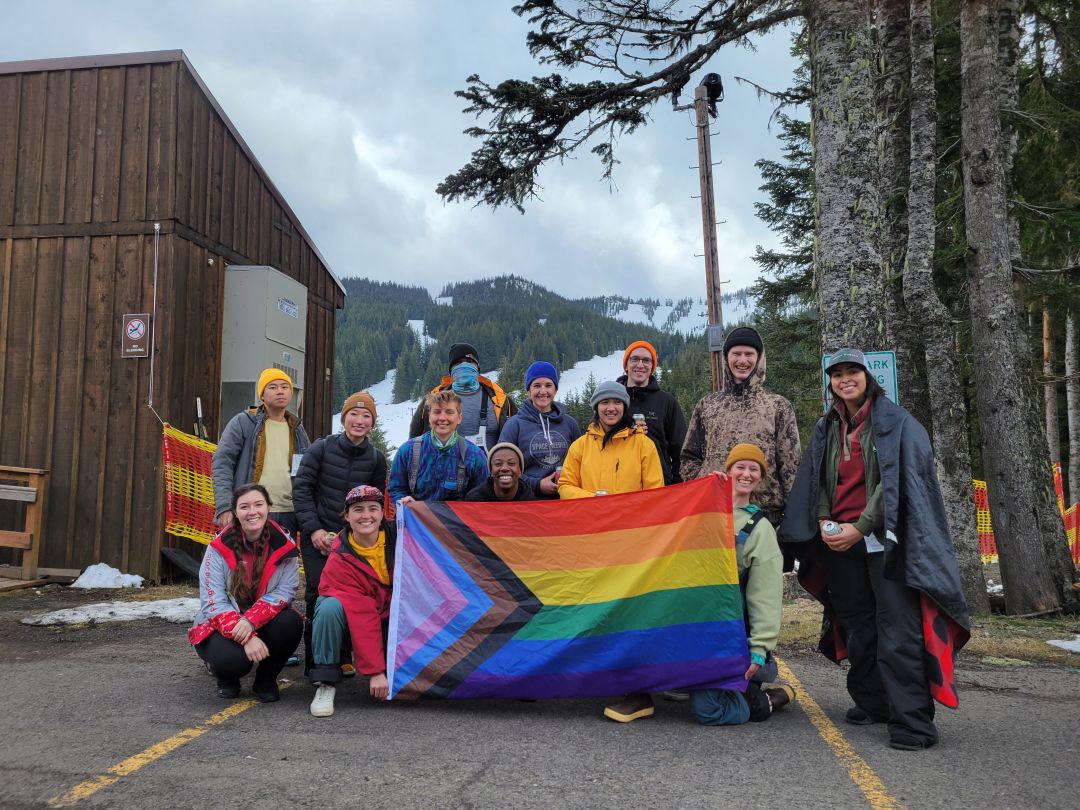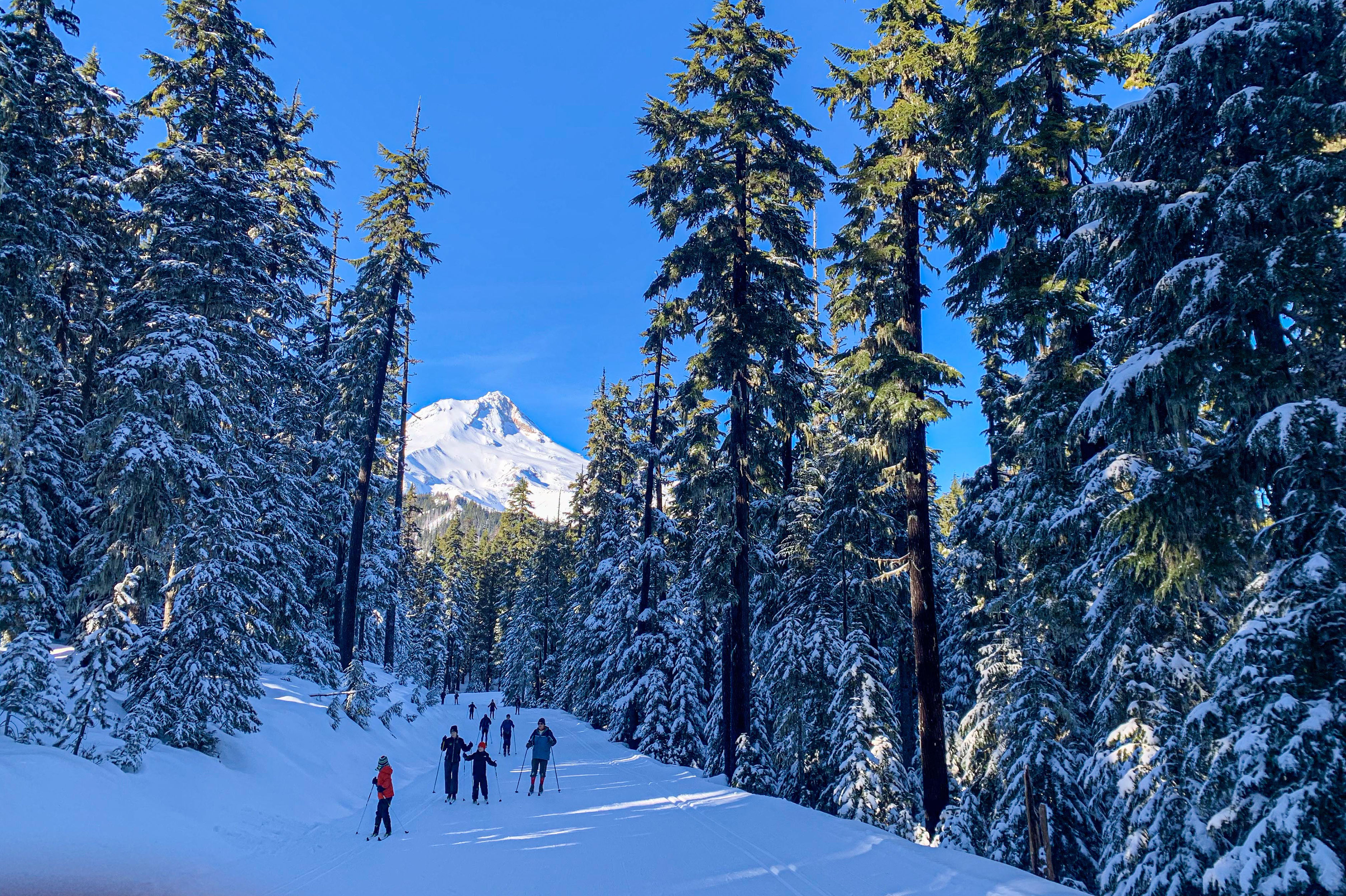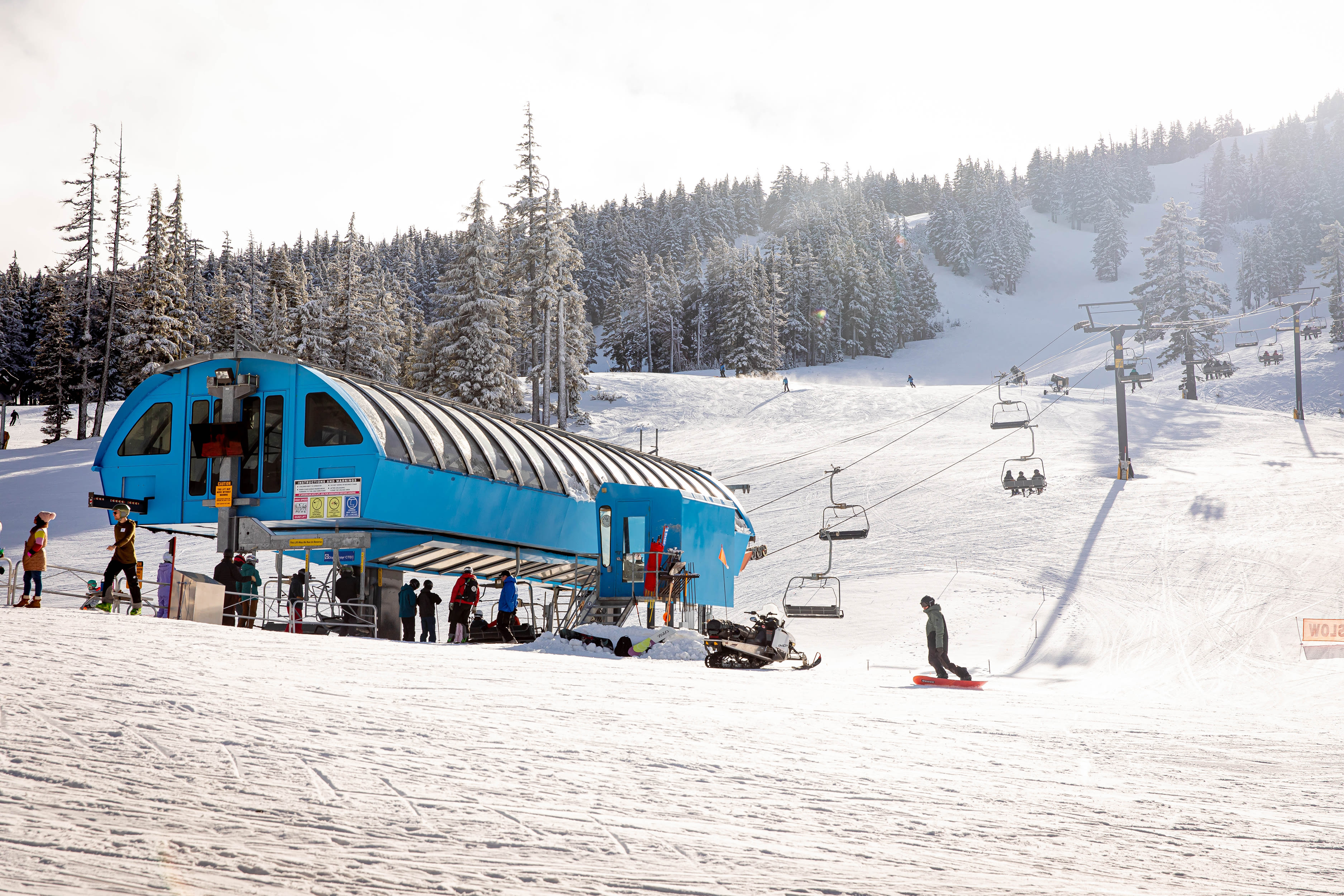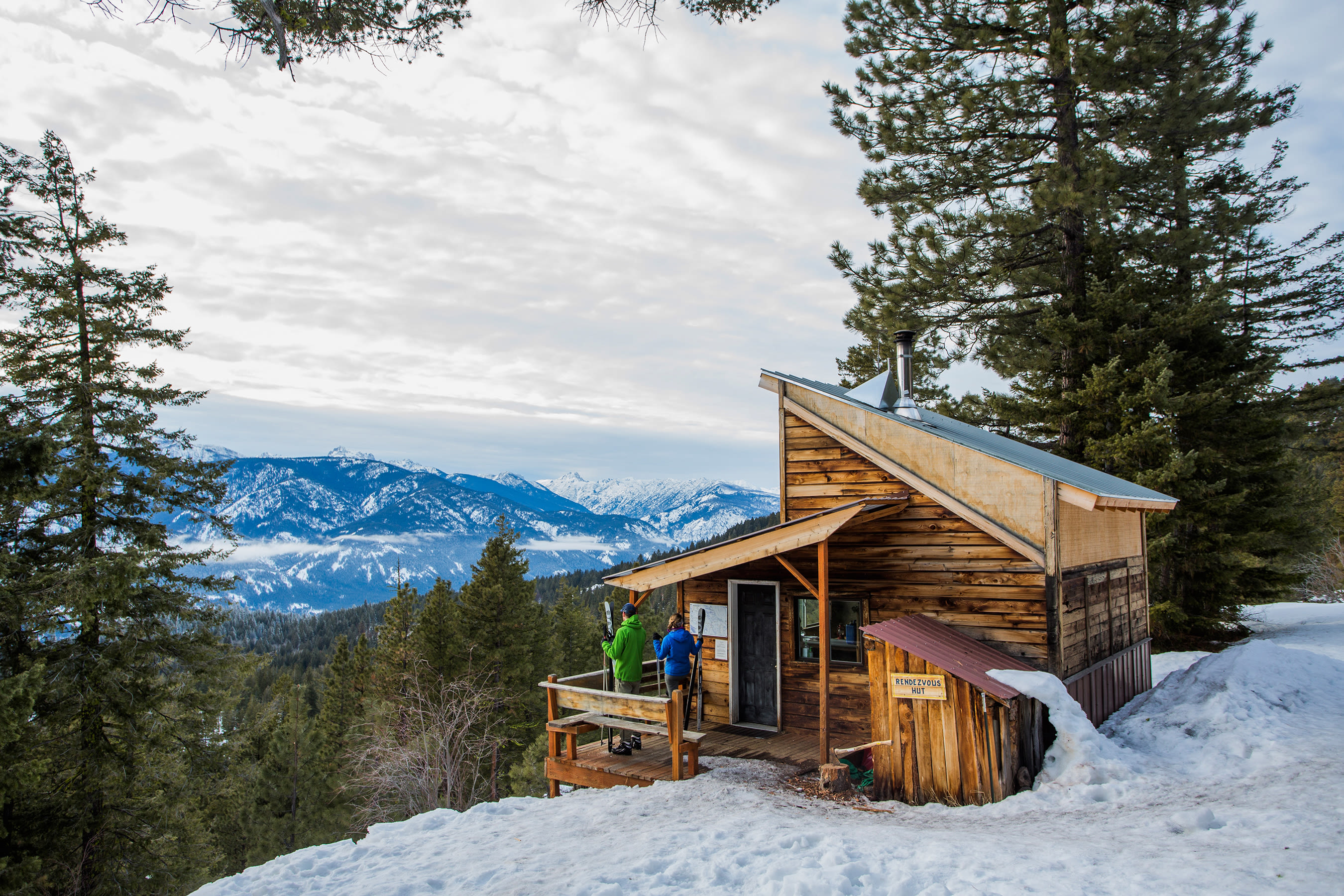Changing the Face of Snow Sports in Oregon and Washington

Open Slopes hosts a BIPOC Shred event at Mount Hood Meadows.
Image: Courtesy Open Slopes PDX
A group of 20 BIPOC skiers and snowboarders stand together in a circle at the entrance of a Mt Hood ski resort. It’s a moment that Mai Li O’Keefe, one of the founders and organizers at Open Slopes PDX, describes as “unreal.”
“In some ways, I think it's kind of tragic that this feels like such a new concept. But it feels so wonderful to be out here because I feel like we're all dreaming together,” O’Keefe says.
The financial and cultural barriers to participation in snow sports are many. Lift tickets and gear are notoriously expensive; a single day at one of the Hood ski resorts can cost between $50 and $150, not counting the cost of transportation, equipment rentals, and lessons.
It’s also no secret that BIPOC representation in snow sports is dismal. Of the 10.7 million skiers and snowboarders in the United States, 89 percent are white, according to the National Ski Area Association.
“If you don’t see yourself in those environments, it’s really hard to feel safe. It takes a lot of bravery to just exist in those spaces,” O’Keefe says.
It’s that sentiment that led O’Keefe and cofounders Hank Stowers and Dallas Haley to start Open Slopes PDX, a mutual aid–funded organization dedicated to breaking down the barriers to entry for BIPOC and LGBTQ+ riders. Their goal is to create spatial and cultural change within snow sports through BIPOC Shred events and Queer Shred meetups.
The organization began as a onetime BIPOC Shred Night at Mt Hood Skibowl in February 2021 that Stowers and Haley organized through their Instagram accounts and funded entirely through Venmo donations.
“I think that was the first time I was like, ‘Whoa. This could actually be different from my previous relationship to skiing,’” says O’Keefe, who participated at the first event. Their experience was so moving, they credit it as the inspiration behind applying to a gear scholarship through SheJumps, an organization committed to getting women and girls involved in outdoor activities. The scholarship gave O’Keefe their first-ever pair of skis and boots.
“It kind of got me thinking ... I’m not the most technically skilled skier. I’m not the most experienced. But why should that necessarily disqualify me from bringing people together or finding community? Or redefining what I want the relationship to skiing to look like?” O’Keefe says.
That experience motivated them to reach out to Stowers and Haley about establishing Open Slopes.
A year later, the trio held their first event as an organization. It garnered wide appeal, with nearly 115 people applied for twelve open spots. Since then, Open Slopes has hosted more than 50 participants. “Honestly, since our first event, we've just been playing catch up,” Stowers says.

Image: Courtesy Open Slopes PDX
For its BIPOC Shred series, Open Slopes provides rental gear, apparel, lift tickets, transportation, mentorship from paid BIPOC instructors, and dinner at zero cost to riders.
This season, the organization is heading back up to the slopes with four BIPOC Shred sessions planned, including an event at the Summit in Snoqualmie for Seattle-based riders, Stowers says. Open Slopes is raising funds through a GoFundMe campaign to cover the expenses, and collaborating on a clothing drive with the Portland-based outerwear company Trew to distribute gently used gear to participants.
“Our long-term goal is that participants leave with all the equipment that they need. If we could actually give them free skis and snowboards, that would be amazing,” Stowers says. “Right now, we’re kind of limited to renting the hard goods and giving the soft goods.”
The organization is looking into potentially becoming a 501(c)(3) nonprofit in the future. Stowers says, but Open Slopes’ main priority remains the same: directly distributing resources and increasing access to people historically excluded and disenfranchised in snow sports spaces.
The organization also hosts Queer Shred meetups, which are more oriented around the terrain park. Though not cost-free, these events serve as an opportunity for LGBTQ+ riders to ski and snowboard together.
“Participants usually find themselves to be really isolated in those spaces and uncomfortable to venture into the terrain park because it’s a space that is historically really dictated by a hypermasculine, patriarchal conforming standard of elitism,” Stowers says. “There’s a lot of hierarchy. There’s a lot of invisible do’s and don'ts that people aren’t led through compassionately.”
Open Slopes focuses on creating a safe space where participants of all ability levels are welcome to learn new skills. “It’s cool that you’re at this level and you still deserve to learn whatever it is that you want to accomplish and just meet yourself where you’re at,” O’Keefe says.
Denise López—who participated at one of the BIPOC Shred events in 2022 and is now an organizer—says the supportive community that Open Slopes fosters was a game-changer for her. “There was a lot of intention and making sure that from the get-go people felt comfortable,” she says. “I never felt like I had to apologize for needing to take an extra minute.”
For many of the Open Slopes participants, it’s their first time skiing or snowboarding.
“It’s not something that people objectively love every time. And that’s totally OK,” Stowers says. “I think that for the most part, people derive the most joy from finding new community. That’s been like our biggest metric for success is how many people participate in our events and then go out again with people they met.”
Building community is at the center of what Open Slopes aims to accomplish. When organizers are not up on the mountain, they’re throwing big dance parties in the city to fundraise for BIPOC Shred events. And when the weather gets bad, participants still find a way to have fun.
Last spring, Open Slopes held Gay May Jump Day, a queer jump clinic. The group was expecting “sunny, slushy, T-shirt skiing weather,” Stowers says. Instead, “it was like 40-mile-an-hour winds hailing sideways.”
Sitting in the parking lot an hour before the event, the organizers were almost ready to publish a cancel post on Instagram. And then 30 people showed up. “Everybody had such a fun time supporting and gassing each other up that what would have otherwise been a ‘turn-around-cancel-the-day’ type of experience didn’t even feel like a burden,” Stowers says.




